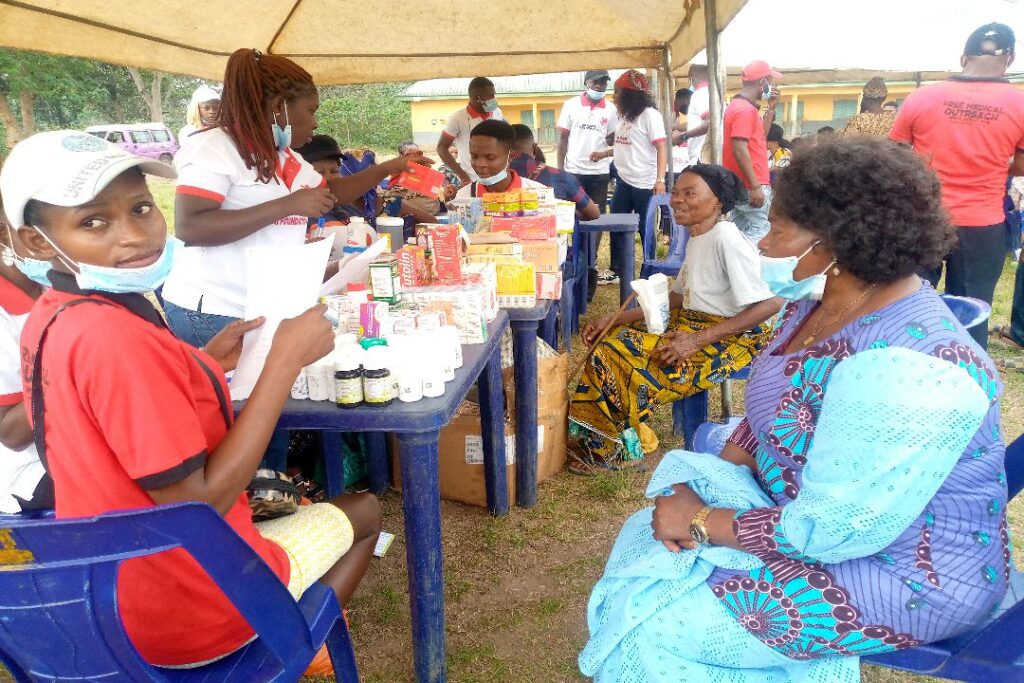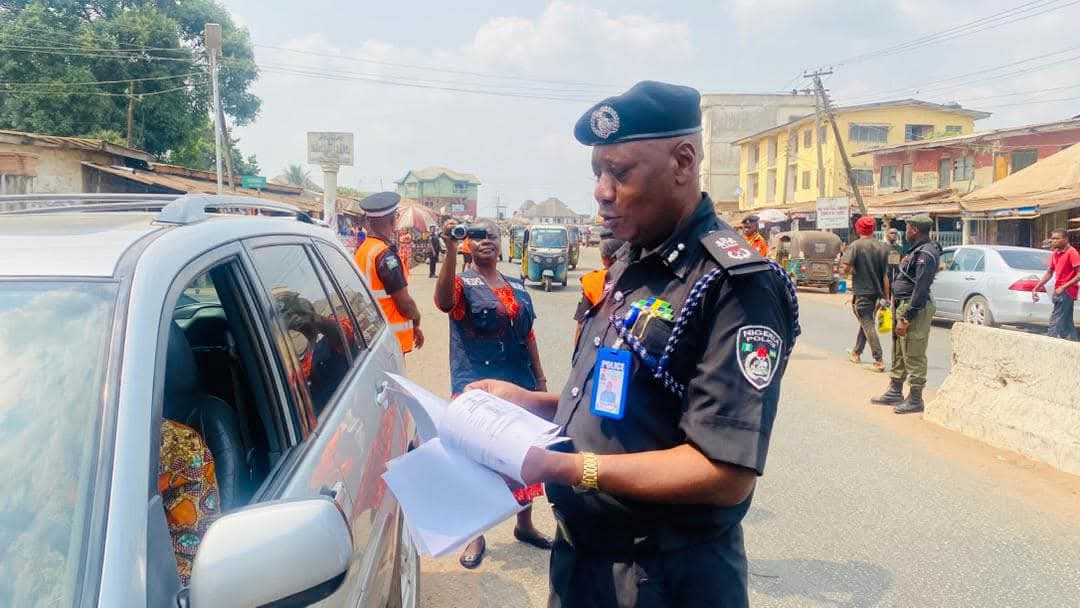Many residents of Imo and Abia, who are worried by the dangers militating against efficient healthcare delivery in the country, have advocated stringent government measures to deal with the phenomenon.
The people spoke in separate interviews with the News Agency of Nigeria (NAN) in Owerri and Umuahia.
They said that the prevalence of expired and adulterated drugs, wrong laboratory test results, obsolete equipment as well as wrong diagnoses and prescriptions by medical personnel pose serious impediment to access to efficient healthcare services.
In Owerri, the Imo capital, a pharmacist, Mr Joseph Ezeh, urged government and regulatory authorities to step up efforts to curb the activities of quacks in the sector.
Ezeh said that most cases of wrong diagnoses and prescriptions could be traced to the activities of non-professionals, mainly patent medicine dealers “who deceive gullible patients”.
He called for the adoption of appropriate measures to checkmate quackery and its attendant implications in the healthcare system.
A former Chairman of the Association of Medical Laboratory Scientists of Nigeria (AMLSN), Mr Peter Nseabasi, called for more investment in the health sector, especially in terms of equipment and staff welfare and retraining.
Nseabasi said that more investment in the sector would help to address the challenges of wrong diagnoses and their consequences.
A nursing student, Onyinyechi Ifeanyi, said that some medical professionals delegate a lot of responsibilities to student doctors and nurses, leaving patients to the mercy of trainees.
Ifeanyi called for better incentives and welfare for health personnel in order to attract more professionals to the sector.
She said it would encourage division of labour and enhance efficiency.
However, a Medical Doctor at the Federal Medical Centre, Owerri, blamed the rot in the health sector on long years of neglect by successive governments.
The doctor, who spoke on the condition of anonymity, said the rot had led to the loss of passion for the job among the doctors, nurses, and other health workers.
He said that the poor remuneration for health workers and the economic situation in the country had negatively changed the disposition of health workers toward their job.
According to him, many doctors at FMC have their own private hospitals or clinics where they consult outside their main job.
He argued that the development made some doctors to lose focus and in some cases, “in their hurry to move on to their next job, they make mistakes.
“Sometimes, patients are referred to private clinics, where they are given exorbitant bills,” the medical practitioner said.
He also said that the problem had persisted “because patients often failed to make formal complaints to the Medical and Dental Council of Nigeria about their ugly experiences in hospitals”.
A civil servant, Nwakego Ndu, narrated how she was told that she had “bilateral tumours” on both ovaries and booked for immediate surgery by her doctor.
“I was diagnosed with tumours on both my ovaries by my doctor when I went to complain of sudden severe pain on my waist.
“Although he didn’t tell me it was cancer, his sense of urgency implied that I would die if I didn’t have the surgery, immediately.
“My family insisted I get a second opinion, and it turned out I had fibroid and not tumour,” Ndu said.
She said that the experience eroded her trust in the medical profession.
“I want people to know that they have the right to question their diagnosis and seek a second opinion.
“It could make the difference between life and death,” she said.
Also, an oncology patient, Mrs Ifunanya Eze, said that when she was first presented with her symptoms, which included dark-colour urine and white stool, she was advised to do a “water therapy” for two weeks.
According to her, muscle relaxants and pain killers were also prescribed without any tests to determine the reasons for her constant pain.
“It was when I became jaundiced that my doctor reluctantly sent me for a scan after berating me for reading up my symptoms on Google.
“I was diagnosed with pancreatic cancer, and his first reaction was to book me for surgery in his clinic.
“But my current doctors told me that I would have died, if I had gone ahead with the surgery,” she said.
In Abia, the Executive Secretary, State Primary Healthcare Development Agency, Dr Kalu Kalu, said that government had taken decisive steps to prevent cases of wrong diagnoses in Primary Healthcare Centers (PHCs) in the state.
Kalu said that the measures being implemented would focus on improving medical accuracy and service delivery in PHCs.
He said the problem of wrong diagnoses could be tackled through a holistic approach, including solving manpower, equipment, and infrastructure issues.
He said that continuous training and retraining of medical personnel play a vital role in ensuring proper patient history-taking, accurate investigations, and precise diagnoses.
“There should be regular training of health workers to keep them up-to-date on best practices and enhance their skills,” Kalu said.
He further said that Abia’s 2025 budget provided for continuous training of medical staff, a practice that began last year with several capacity-building programmes for frontline health workers.
He also revealed that Abia Government had approved the recruitment of new health workers to strengthen manpower in hospitals and PHCs.
He said that government was reconstructing health centers in the 17 Local Government Areas and would be equipping them with modern medical tools to enhance service delivery.
“The government is not just focused on building health centers but also equipping them with the necessary tools to provide quality healthcare.
“We are committed to ensuring that residents of Abia have easy access to quality healthcare.
“This is in line with the vision of Gov Alex Otti to improve the state’s healthcare system,” he said.
Kalu also said that government’s comprehensive strategy would significantly reduce cases of misdiagnosis, improve patient treatment outcomes, and strengthen the overall healthcare sector in the state.
A former President of the Nigerian Association of Resident Doctors, Dr Emeka Orji, said the rising cases of wrong diagnosis could worsen without urgent intervention in healthcare training, infrastructure, and manpower.
Orji, a Consultant Orthopedic Surgeon, said that inadequate history-taking, faulty diagnostic equipment, unreliable laboratory results, and overworked medical personnel, remain major causes of misdiagnosis.
He said that the overwhelming workload faced by doctors due to the severe shortage of medical personnel in Nigeria needed to be addressed.
Orji said that Nigeria operates far below the World Health Organisation’s recommended doctor-to-patient ratio of 1:600, pointing out that the country operates at a shocking ratio of 1:10,000.
“When a doctor who is supposed to attend to 600 people is catering to 10,000, mistakes are inevitable.
“This workload, combined with inadequate training and poor working conditions, contributes significantly to wrong diagnoses,” he said.
He further criticised the Federal Government’s recent directive for medical schools to double their student intake without increasing infrastructure and faculty.
Orji said that this could lead to the churning out of poorly trained doctors by medical colleges and would consequently lead to increase in medical errors.
He also stressed the need for improved quality control in laboratories to ensure accurate test results.
He said that expired or poor-quality reagents, faulty machines, and lack of strict monitoring often lead to unreliable lab reports.
He said: “This development has forced many physicians to rely more on clinical judgment than laboratory findings.
“That is why tertiary hospitals insist on conducting tests in their own labs, since they do not fully trust external facilities.”
Orji called for urgent government action to stop brain drain in the medical sector, improved healthcare infrastructure, and enforcement of quality control in medical diagnostics.
Also, a mother of three, Mrs Obunwa Ulonna, said that she experienced wrong diagnosis when she had her first child.
Ulonna urged government at all levels to take decisive steps to ensure that medical errors are minimised to safeguard the health of patients.
A Laboratory Scientist, Mrs Ugochi Chukwuneke, said caution in a patient’s clinical examination and diagnosis could curb some cases of misdiagnosis in the nation’s health sector.
Chukwuneke, who works at the Miraculous Medical Laboratories, Umuahia, admitted that there were usually cases where some patients’ clinical test results could be misplaced by some health personnel.
According to her, when patients visit their laboratory, they ensure the patients names are written on specimen collection bottles before collecting their samples, to avert such errors.
“If you interchange their names at the reception, anything you are doing inside is nonsense because you are likely to give the patient wrong result,” she said.
Chukwuneke, who shared her experiences, said that other factors might also contribute to wrong diagnosis.
She said: “I had done a test where a man was screened as HIV positive somewhere, but I ran a similar test and discovered he was negative.
“I asked him to go to Federal Medical Centre for a confirmatory test because other ailments like tuberculosis or hypertitis might interfer to give a false positive HIV result.
“He did the confirmatory test and was happy eventually.”
Also, an Umuahia-based laboratory technician and microbiologist, Mrs Ojingwa Anya, expressed concern about the rot in the healthcare sector, saying that it has caused much havoc to society.
Anya, who was saddened by the menace of expired drugs and other negligence in the sector, urged the regulatory authorities to intensify efforts in the fight against the unwholesome practices in order to save lives.
“We in the healthcare sector need to be very careful in whatever we do to avoid sending people to untimely grave.
“Fresh medical graduates need to be tutored by the older and experienced ones; they need to be properly guided,” she said.



